
China
12:25, 23-Sep-2018
Women left behind in Ningxia village rise from poverty through handicrafts
Updated
11:36, 26-Sep-2018
CGTN
03:38
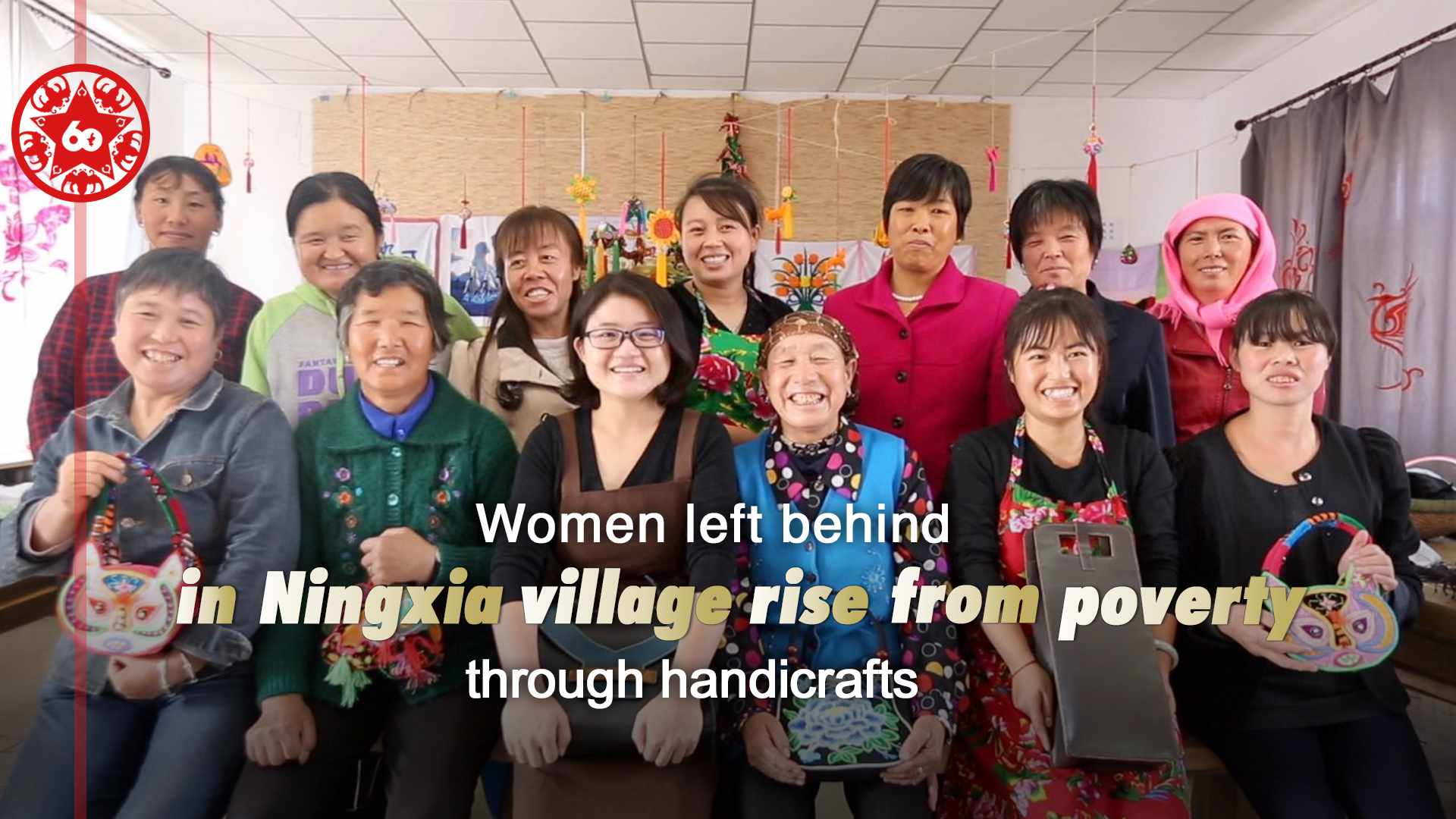
In 2014, more than 5,000 people moved to Guangrong village from Xiji County in Ningxia Hui Autonomous Region because of severe water shortages in their area. But while the government-sponsored relocation to another village, Guangrong, offered them better living conditions and better educational facilities too, it created a new issue. Women left behind lost their only viable source of income.
Parents from rural communities often have to leave their children, and migrate to another city in order to earn more money to keep their family going. In Xiji County, mothers who stayed on to look after their kids could earn money by farming or raising cattle. But that's not possible in Guangrong village – while men go out to work, some 400 of the women in Guangrong can't go any farther from their village to work because of they must look after their children.
But this is a story with a happy ending.
We met with Qiao Xue, who holds the title of Inheritor of Intangible Cultural Heritage because of her mastery of leather handicraft. As the new residents of Guangrong were arriving, her business was starting to take off.
Orders for her handicraft were starting to come in from other cities and even from overseas. So she needed help, and the Women's Federation of Yinchuan suggested she work with the mothers who needed household work. "Why don't I get those left-behind villagers near me to do it?" Qiao said, "instead of letting co-packers to subcontract my orders? She has two children herself, and felt strongly that she wouldn't want any of her offspring to be a left-behind child."
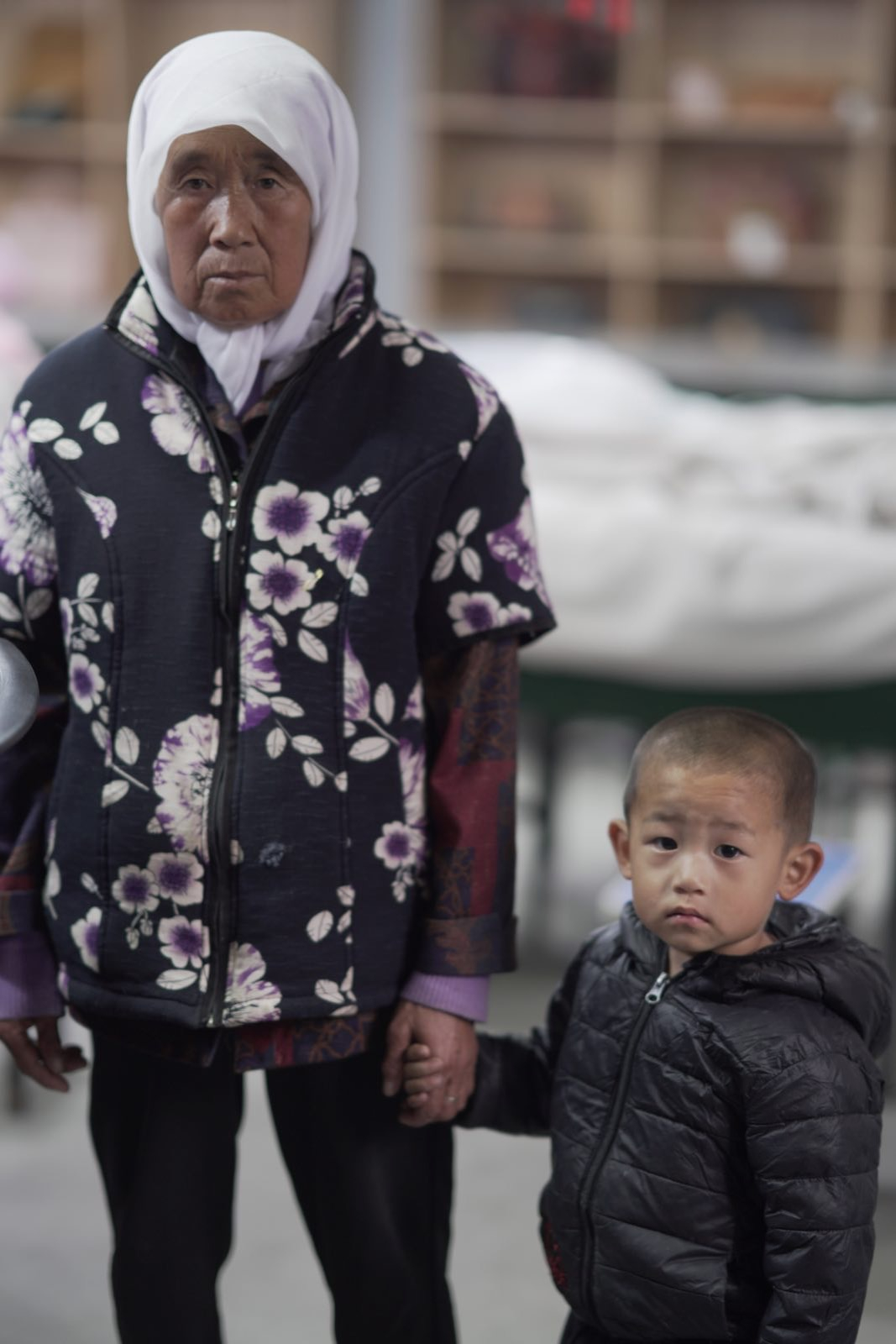
CGTN photo
CGTN photo
They also pitched in, and Qiao got a subsidized loan of 60,000 yuan to initiate the project in Guangrong. And so she started a project that would put the chance of a more prosperous future into the hands of many women in the village.
For just under a year, Qiao has been teaching the women the theory and practice of the leather bags of which she is a master, or something easier such as cotton shoes and insoles.
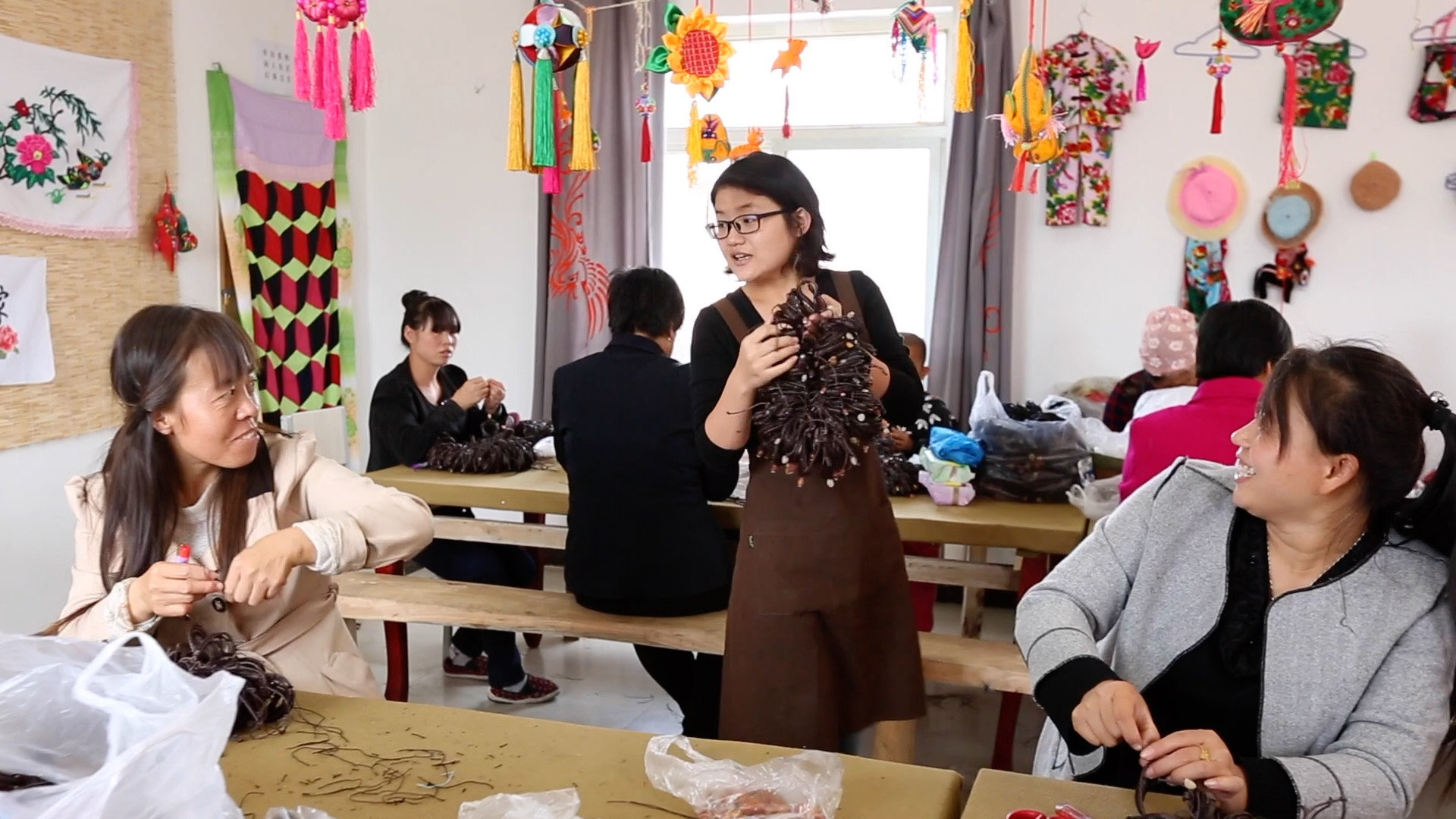
And when her trainees qualify, they get signed contracts for production orders. The best part of it is that this production can be done at home, so mothers can work while looking after family, being there for their children without worrying about a source of income.
Since the project started, it has created work for more than 150 villagers and given them an income ranging from hundreds to as much as 2,000 yuan per month. One mother told us proudly, "This year, I paid all of my family's living costs myself."
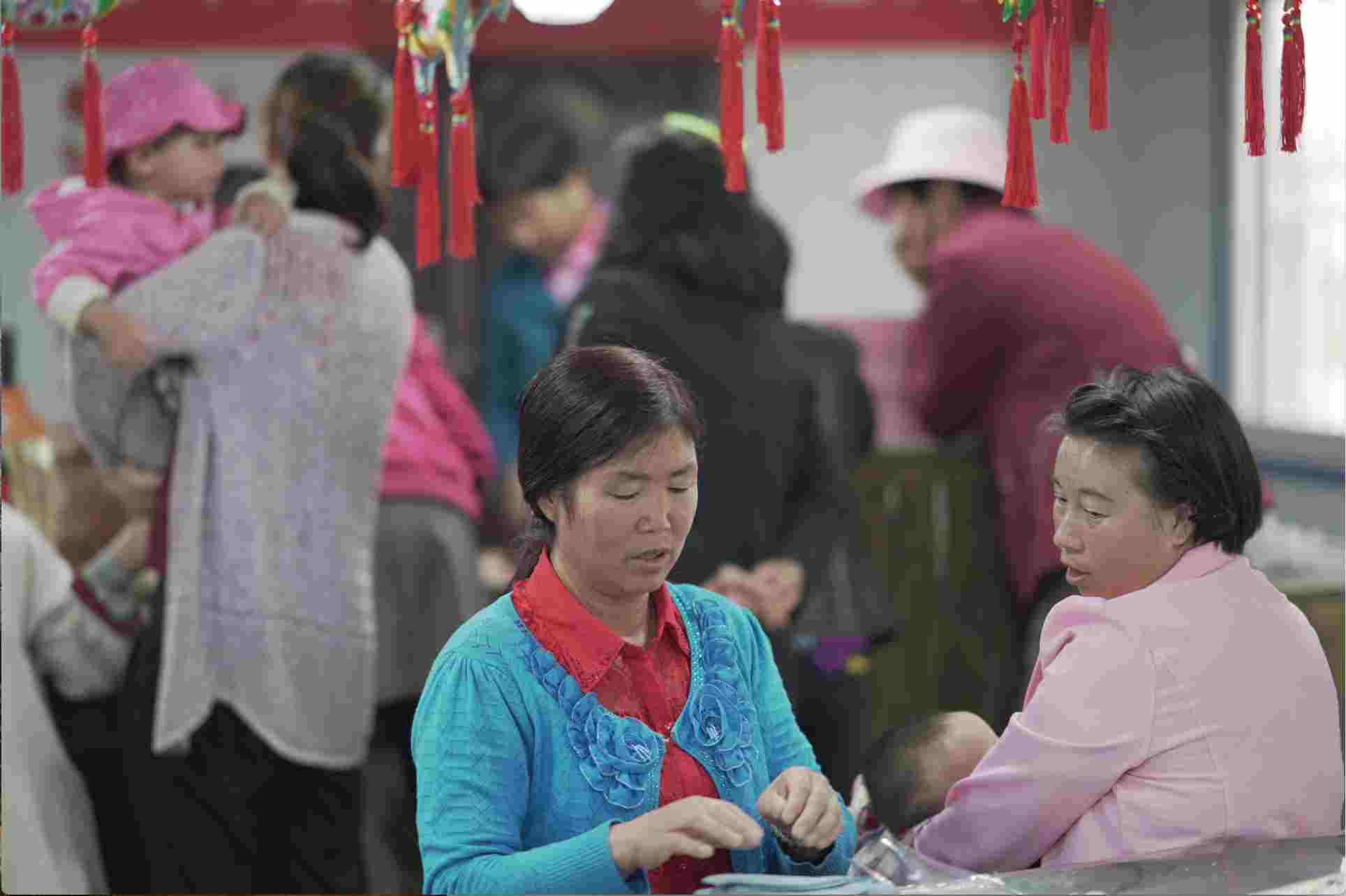
CGTN photo
CGTN photo
Qiao sees it as a win-win scenario. "It is not only me helping them, we are helping each other," she said.
And there is the promise of more happy families to come: Qiao is going to cooperate with the Women's Federation of Yinchuan to start a new workshop in Xinrong, the second largest relocation village in Helan county in Ningxia. So this Inheritor of Cultural Heritage will be helping even more families inherit a better future.
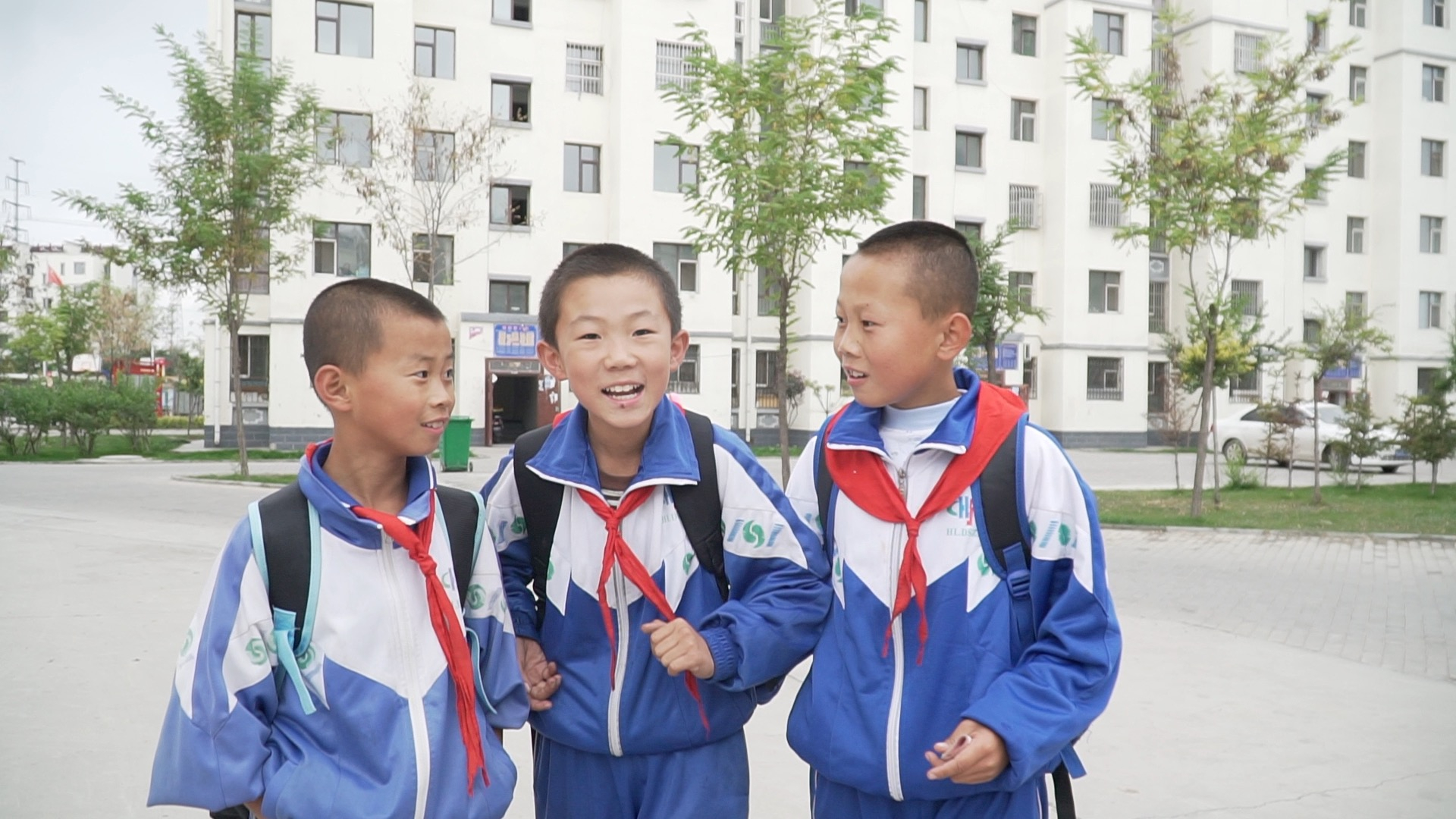
CGTN photo
CGTN photo

SITEMAP
Copyright © 2018 CGTN. Beijing ICP prepared NO.16065310-3
Copyright © 2018 CGTN. Beijing ICP prepared NO.16065310-3